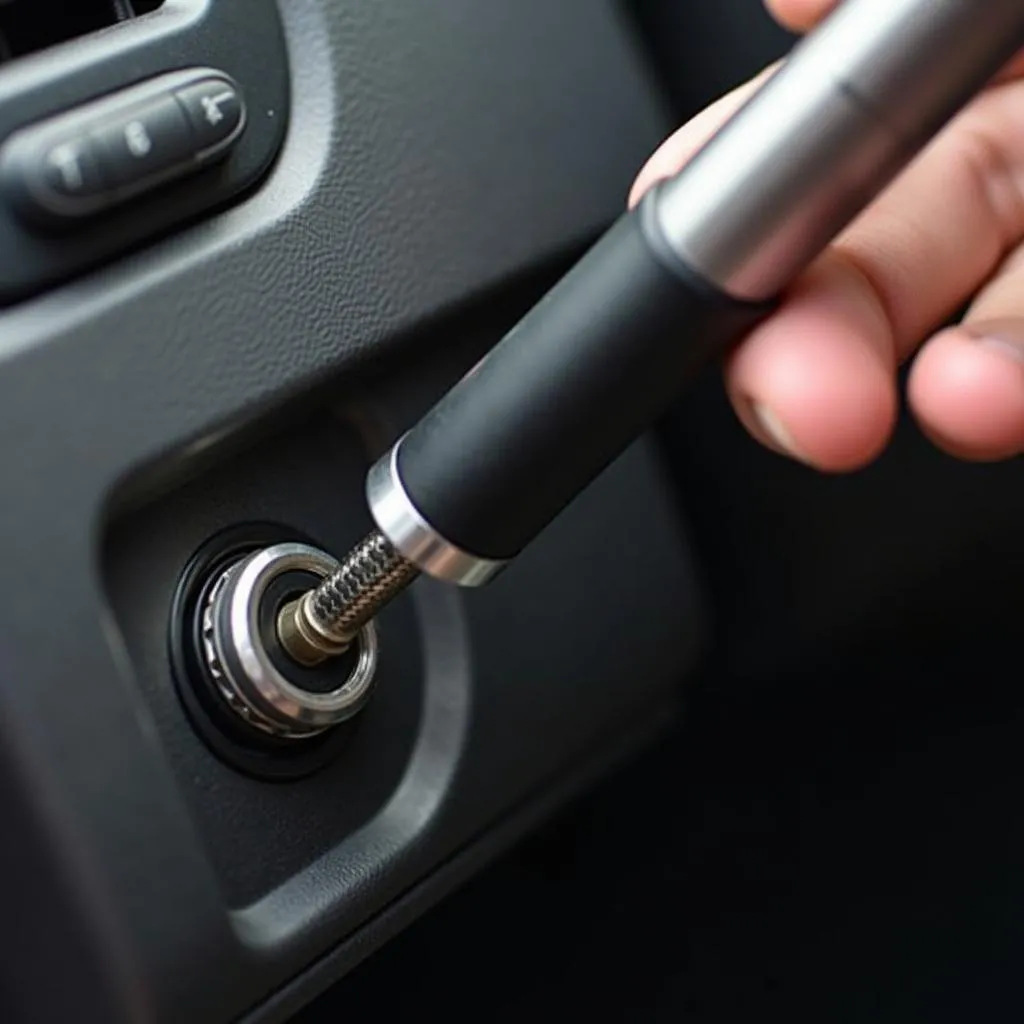Dealing with a malfunctioning anti-theft device can be incredibly frustrating. These systems are designed to protect your vehicle, but when they act up, they can prevent you from starting your car altogether. If you suspect your anti-theft system is the culprit, specifically due to a possible magnetization issue, you might be able to address it yourself. Let’s delve into the steps of how to demagnetize an anti-theft device and get you back on the road.
Understanding the Issue: What Causes Magnetization?
Before we jump into solutions, it’s crucial to understand why anti-theft devices might experience magnetic interference. Essentially, these systems often rely on electromagnetic fields for communication between the key, the ignition system, and the car’s computer. When an external magnetic field interferes, it can disrupt this communication, leading to a false alarm or preventing the car from starting.
Common culprits of magnetic interference include:
- Electronic devices: Smartphones, laptops, tablets, and even some charging cables can emit magnetic fields.
- Magnets: Refrigerator magnets, magnetic phone mounts, or tools stored near your car keys can all contribute.
- Aftermarket accessories: Some non-OEM accessories, especially those with built-in magnets or poorly shielded electronics, might interfere with the anti-theft system.
Recognizing the Signs: Is Magnetization the Problem?
How can you tell if your anti-theft system is acting up due to magnetization? Here are some telltale signs:
- Intermittent starting issues: The car starts fine sometimes, but not others.
- Security light flashing rapidly: The anti-theft or immobilizer warning light on your dashboard might flash rapidly.
- Key fob malfunctions: Your key fob might work inconsistently, or the car might not respond to it at all.
If you’re experiencing these symptoms, especially if they occur after introducing a new electronic device or magnetic object near your keys or steering column, magnetization could be the culprit.
 Car Key and Dashboard with Warning Light
Car Key and Dashboard with Warning Light
What You’ll Need
Before you begin, gather a few simple tools:
- Demagnetizer: You can find a demagnetizer at most electronics or hardware stores. They are commonly used for tools and audio/video equipment.
- Car Key(s): Have all of your vehicle’s keys ready.
Demagnetizing Your Anti-Theft Device
Here’s a step-by-step guide on how to demagnetize your anti-theft device:
- Consult Your Owner’s Manual: Always start by consulting your car’s owner’s manual. It might offer specific instructions or warnings about demagnetizing procedures for your vehicle model.
- Demagnetize Your Keys:
- Pass the Key: Slowly pass your car key(s) through the demagnetizer a few times. The goal is to neutralize any magnetic fields stored within the key itself.
- Demagnetize the Ignition Area (If Applicable):
- Caution: This step is not always recommended and can potentially damage the ignition system in some vehicles. Consult your owner’s manual or a qualified mechanic before attempting this step.
- Pass the Demagnetizer: If safe to do so, slowly pass the demagnetizer around the ignition cylinder area a few times to disrupt any external magnetic fields.
- Test the System: Attempt to start your car. If the demagnetization was successful, the anti-theft system should function correctly.
 Using a Demagnetizer on a Car Ignition
Using a Demagnetizer on a Car Ignition
FAQs about Anti-Theft Systems and Diagnostics
Q: Can I prevent my anti-theft device from being accidentally magnetized?
A: Absolutely! Store your car keys away from electronic devices, magnets, and metal objects. A dedicated key holder or a drawer away from potential interference sources is ideal.
Q: I tried demagnetizing, but the issue persists. What now?
A: There might be a different problem with your anti-theft system, such as a faulty key fob battery, a wiring issue, or a problem with the immobilizer module itself. It’s best to consult with a qualified automotive electrician or your dealership for further diagnosis and repair.
Q: Can I use a smartphone app to diagnose my car’s anti-theft system?
A: While some apps offer basic vehicle diagnostics, they might not provide in-depth analysis of anti-theft systems. Professional-grade diagnostic tools, like those offered by Cardiagtech, are often necessary for a comprehensive evaluation of complex automotive electronics.
Need expert assistance? Consider reaching out to CARDIAGTECH for advanced automotive diagnostic solutions.
